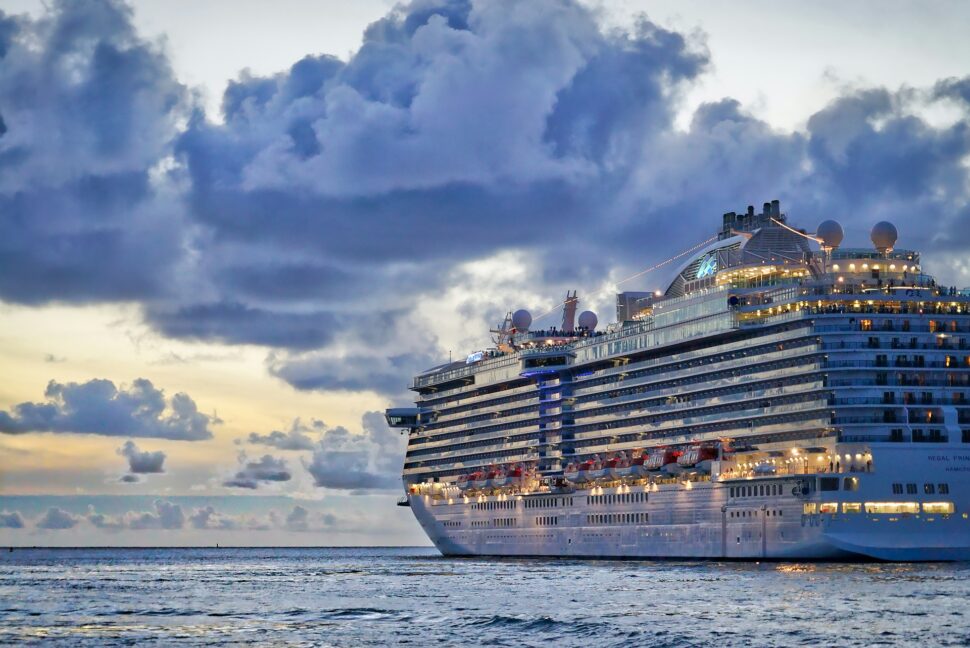With all the chaos going on post-election, it’s enough to need a vacation far away from the news, social media and (sometimes) even relatives and friends. That solo island travel trip that had been on your mind for a while now suddenly sounds even better, especially to a remote place where you know you’ll never see anyone you know. You could even island hop and enjoy the perks of “island brain.” But before joining other solo cruise travelers for this carefree trip, do you have cruise insurance? Do you know your legal and medical rights before boarding the cruise? And why would you need this type of travel insurance anyway?
Yes, Crimes Happen on Cruise Ships Too
Unfortunately, while you might be trying to unwind, your safety should be top of mind. Former The Daily Show field correspondent Hasan Minhaj may have burned a few travel bridges with his Netflix series The Patriot Act, especially during “The Real Cost of Cruises” episode. But he’s not the only one to warn cruise travelers to be careful.
The U.S. Department of Transportation released its latest cruise line incident report from December 2024. According to the report, there were four incidents of assault with bodily injury on Carnival Cruise Line, one on Norwegian Cruise Line and one on Princess Cruises. There were less than 10 incidents reported related to theft of more than $10,000 on seven major cruise lines. (The three aforementioned cruise lines, plus Margaritaville at Sea, MSC, Disney Cruise Line and Royal Caribbean Cruise Line, were used for these results.)
However, the numbers start getting a little higher when it comes to sexual assault (seven total) and sexual assault-rape (18) this past year. While these numbers may seem small compared to crimes on flat ground, cruise crimes are significantly underreported (and rumored to be much higher numbers at approximately 131). The Cruise Vessel Security and Safety Act (CVSSA) of 2010 does require cruise ships to report criminal activity to the FBI. But fear, stigma, feeling shamed by the cruise line or not knowing the proper channels to report cruise ship assaults can leave cruise victims feeling even more vulnerable. And they still have to wait for this cruise to end before escaping to safety.
If a serious crime does happen on a cruise ship, the FBI can investigate:
- Assault with serious bodily injury
- Murder or attempt to commit murder or manslaughter
- Kidnapping
- Sexual assault
- Robbery, theft of money or property, and/or receiving stolen property in excess of $10,000
- Firing (starting a fire on or tampering with the vessel)
The FBI also investigates suspicious deaths and/or missing U.S. nationals.

What Cruise Insurance Covers
Although cruise insurance is generally purchased for more harmless travel incidents (ex. lost baggage, baggage delay, hazardous weather, missed connections, disruptions of shipboard services, itinerary changes, ship-based mechanical breakdowns), solo cruise travelers can also use this insurance to pay for the cost of medical care, which may not be covered by your own health insurance provider while outside of your home country. Cruise insurance can also cover costs related to illnesses or injuries while on that cruise vacation.
Rape, Abuse & Incest National Network (RAINN) confirms that cruise travelers have the right to have a sexual assault forensic exam on board. Additionally, cruise ships must have the equipment and materials for performing this medical exam, should a sexual assault occur. There may be complications when it comes to reporting certain crimes though because different countries may have varying legal standards and procedures. The National Sexual Assault Hotline can be reached at 800-656-HOPE (4673) for guidance when in a safe place to talk though.

What Cruise Insurance Does Not Cover
Depending on how the cruise is set up, solo cruise travelers may have to fly to one city in order to board a cruise. For example, someone going on a cruise to the Bahamas may have an overnight stay in Miami. However, cruise insurance does not cover hotels, tours, car rentals or the flight; it only covers the actual cruise part of the vacation. And depending on the package, those Cancel For Any Reason (CFAR) coverage offers may end up being a credit instead of a cash or credit card refund. Travel insurance plus cruise insurance may be needed on top of cruise insurance costs.
If a solo cruise traveler becomes the victim of sexual assault while on a cruise (and not during the flying or hotel part of the trip), and while cruise insurance’s emergency medical coverage is on the lower side, travelers can still file a claim with the cruise line or the cruise line’s insurance company. Evidence of the cruise line’s policies and training records, along with testimony from a physician about any injuries while on the cruise ship, will more than likely be required.

Cruise Crimes Aren’t Stopping Cruise Lovers From Traveling
Of course, this does not mean solo travelers should avoid all cruises or their next vacation destination, just plan carefully and get familiar with the cruise line beforehand. A guesstimated 35.7 million people took a cruise by the end of 2024, according to the Cruise Lines International Association (CLIA). In 2023, there were 31.7 million cruise travelers. And by 2027, the forecast is that cruise travelers will total nearly 40 million passengers. On top of that, 12% of cruise travelers cruise twice a year while 10% of cruise travelers take three to five cruises a year.
Whether they’re solo cruise travelers or vacationing in groups, generally, cruise lines should want to make their guests feel safe. With or without a travel buddy, become familiar with the cruise line’s safety info on their website and understand how your health insurance works in the country or island you’re traveling to. Before you leave, ask any safety questions you may have with cruise staff. Before you’re gushing over an ocean view, be confident that that cruise line also prioritizes your well-being and cruise safety.





